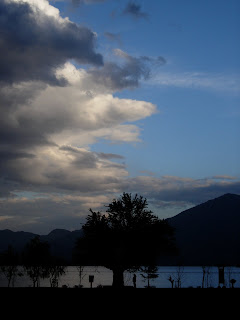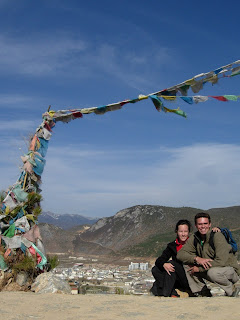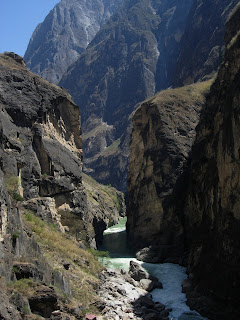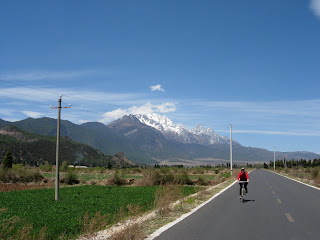Songpan - poor horses





Welcome to our website for the latest news on travel, events, food/beer, or just about anything that interests us, or might interest you.







 If travelling overland from Lijiang to Chengdu was a like fighting Mike Tyson, the leg from Lugu Lake was like the uppercut that takes more than just your breath away. We started fairly early catching a taxi to a nearby town because we'd told that's where we had to catch the bus. We arrived way to early and had to wait about 3 hours. The bus arrived and the only available seats we right at the back between a nauseous Mosu woman and a porky couple. We pulled away from the village and drove around 30 minutes, stopping at the village we'd spent the night in and left about 4 hours earlier to catch the bus. The journey could only be compared with riding one of those machine bronco bulls and we hit new heights with vomit stats. The little puke bags had filled the bins so by the end of the trip the passage way was dotted with serious obstacles. If you add to that the fact that majority of the passengers chain smoke, you really find yourself in a situation that requires the patience of a saint.
If travelling overland from Lijiang to Chengdu was a like fighting Mike Tyson, the leg from Lugu Lake was like the uppercut that takes more than just your breath away. We started fairly early catching a taxi to a nearby town because we'd told that's where we had to catch the bus. We arrived way to early and had to wait about 3 hours. The bus arrived and the only available seats we right at the back between a nauseous Mosu woman and a porky couple. We pulled away from the village and drove around 30 minutes, stopping at the village we'd spent the night in and left about 4 hours earlier to catch the bus. The journey could only be compared with riding one of those machine bronco bulls and we hit new heights with vomit stats. The little puke bags had filled the bins so by the end of the trip the passage way was dotted with serious obstacles. If you add to that the fact that majority of the passengers chain smoke, you really find yourself in a situation that requires the patience of a saint.
























Even though the technique's conclusion was the polar opposite of the intention, it's visual impact was outstanding.
Shaxi is a quaint traditional village set in a beautiful agricultural valley of buffalo's, bright yellow rape and Bai women engaged in a mix of foraging and farming. The people were all amazingly friendly and even though we tried to stop him, the owner of our guesthouse (Ou Yang) treated us as if we were foreign dignitaries. His niece visited us on our last evening and while Jackie and her engaged in English and Chinese lessons I got an impromptu but surprisingly formal cooking lesson.









